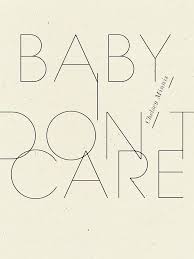
Books are family, some extended and some immediate, but if you are a writing bibliophile like me, your bookshelves are groaning and your day of reckoning is nigh.
Marie Kondo aside (thank you), Judgment Day usually comes in the form of a move, specifically a variety known as the Downsizing Move. While my wife does battle with the dragons known as clothes and sentimental junk (read: stuff saved for the kids, who will not want it), I take arms against books—a thought previously unheard of.
While looking over my shelves, all manner of questions come to the fore. Why do I still have this book? Will I ever read this book? Will I ever reread this book? Even, how on earth did this book get here?
What’s more, I’ve learned a lot about myself. Let me count the reasons why I’ve collected books over the years:
- The books are a history of me. That’s right. I find myself remembering when I got the book, why I got the book, how I got the book. Donating or selling these books will be like tearing a chapter out of my own book—my life’s history, a.k.a. The Story of Me.
- The books haven’t been read yet. OK, fair enough, but is the desire still there? In confronting myself with this question, I often have to be honest and say no. Why did I buy it, then? Mood purchases. Phase purchases. Impulse purchases. Whatever it might be, I have to face this question and be honest if I hope to give it the old heave-ho.
- The books speak of time and place. Oh, man, I loved that trip to Miami Beach! The one where I read Hemingway’s The Sun Also Rises by the pool. And what about the strange week’s vacation at Old Orchard Beach, the one where I read that little-known “beach read” called The Charterhouse of Palma? Man, did I love those books, almost in a sentimental, geographic kind of way! How can I part with them now? Wouldn’t it be like a divorce between time and place?
- The books are pretty. They’ve long been evicted from the already-cluttered coffee table, and they’re so big they lie on their big sides, but these coffee table books look first rate because, well, they’ve only been opened once—the day I got them. How can I part with such masterpieces in mint condition? What kind of cruel tyrant am I, anyway? And what about those cute little Penguin paperbacks with their black spines, each calling out the name of a beloved author from Russia’s Golden Age (Turgenev! Tolstoy! Lermontov!)?
- The books might be worth money. It’s incredible how many first editions I have on these hallowed shelves. What? Donate riches to the library book sale? No doubt they’d be plucked from the pile by some savvy overseer of sales who will sell them for personal profit! So I search on eBay and discover, verily, that the same first edition as I now hold in my hand sells for a range of prices: $5 to $599. Welcome to eBay, Online Field of Dreams! (And how does one do eBay, anyway? Doesn’t it involve buying stock in the United States Postal Service?)
- The book was a gift. What? Donate a book that Aunt Mae gave to me for my 12th birthday? But, but… What if Aunt Mae, in her dotage, visits us for Christmas next year and asks how often I’ve reread that Tom Sawyer she bought me? What if she takes a moment to scour the bookshelves for its place of honor, then casually quips, “Ken, I can’t seem to find that copy of Tom Sawyer I gave you when you were a lad. Can you give me a hand here?”
- The books will come back to haunt me. I often wonder about future me, reaching for a book that has always been there. You know, the initial confusion while I’m having trouble finding it, searching on high shelves and low only to discover that Nefarious Me (Past Tense) has dumped it in the name of downsizing or, worse still, the trendy (at the time) name of Marie Kondo. It will seem like I’ve downsized my heart (see Grinch comma green) and not my home!
True, some books will make the cut, and no book should wind up in a cardboard box of the new, smaller home’s basement, but still, these Days of Biblio Reckoning are terrible things. They do not spark joy so much as rebellion. They spark an uncivil war within the conflicted, bookish heart!





